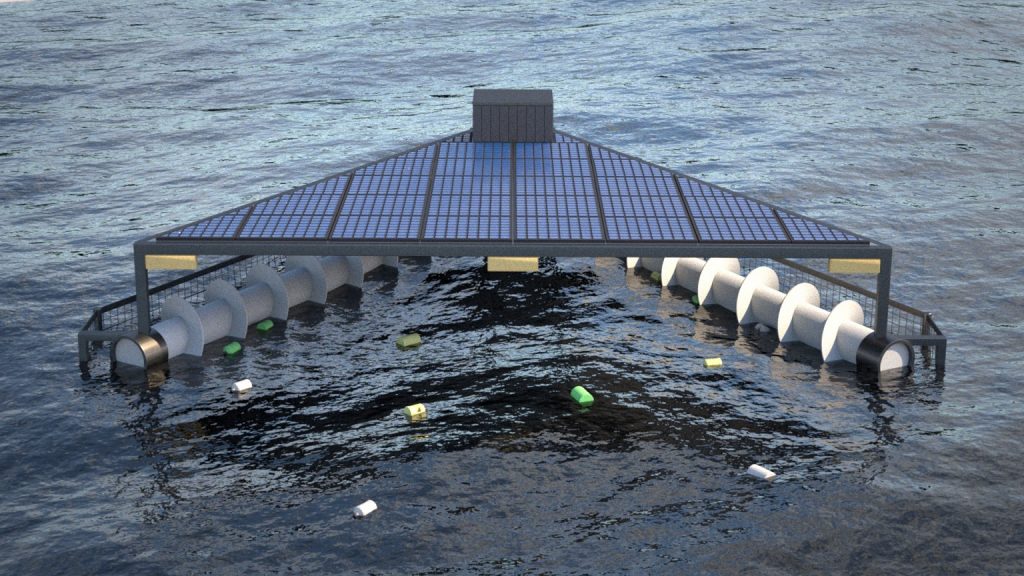Calgary-based Technika Engineering is developing technology for collecting plastics and other marine debris from water surfaces powered by solar and wave energy. The technology will also be adapted for the purpose of cleaning oil and chemical spills.

A working-scale prototype of the technology, called DeltaSea, has recently been tested in Vancouver, Canada. According to the company, the testing program has validated all of the key operating parameters of the technology and verified the engineering models that will be utilized for supply of future operating units.
The main objective of the DeltaSea technology development is to enable efficient and economic collection of plastics and other marine debris from water surfaces. The operating principle of the technology is based on utilizing a proprietary arrangement of a helicoidal elements which deliver the three main functions required of the system: buoyancy support, propulsion, and collection of debris.
DeltaSea is suitable for operations in coastal regions, river deltas, lakes, and open ocean environment. Due to its unique mode of operation, the technology will be particularly effective in cleaning highly polluted areas where water surface is covered with densely concentrated debris. This addresses the main limitations of the existing technologies, such as vessels equipped with sweeping arms, which when operating in such conditions are subject to high energy consumption and other issues such as clogging by debris, Technika Engineering explains.
This technology can be remotely controlled and programmed for autonomous unmanned operation and will provide efficient systems for debris collection and oil spill recovery operations in ports, terminals, reservoirs, resorts and coastal cities.
Technika Engineering said it is currently in discussions with the industry partners and organizations to support completion of further engineering of the technology, and to make it fully available for operations in 2020.